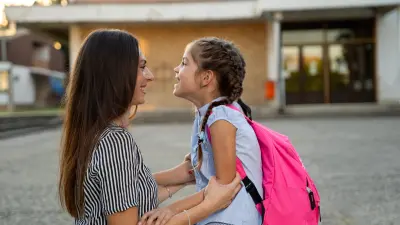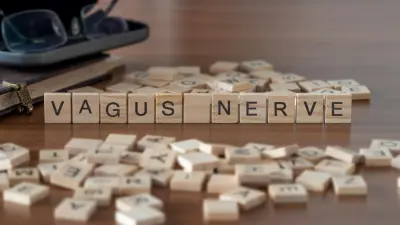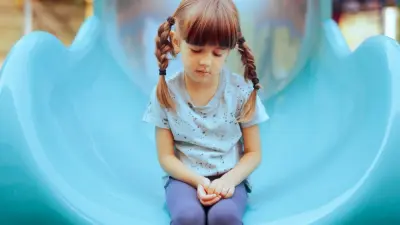What if the best thing you could give your child wasn’t tutoring, extracurriculars, or constant praise—but emotional strength?
In this episode of The Science of Success podcast, host Matt Bodnar interviews Amy Morin, psychotherapist, TEDx speaker, and best-selling author of 13 Things Mentally Strong Parents Don’t Do. Morin offers science-backed insights on how to help kids (and ourselves) become more resilient, emotionally aware, and confident—even in tough times.
Here are 10 actionable tools and strategies parents can use to help children develop lifelong mental strength.
1. Teach Emotional Vocabulary
Help kids move beyond just “happy, sad, mad.” When children can label their feelings, they’re better equipped to manage them.
Try this:
- Say your own emotions aloud: “I’m feeling frustrated, but I can handle it.”
- Use emotion thermometers or visual charts.
- Ask, “How do you think your friend felt?” and have them show it with their face.
“If you just name your emotions, it takes a lot of the sting out of them.” – Amy Morin
2. Normalize All Emotions
Let kids know it’s okay to feel sad, scared, or angry. Avoid phrases like “cheer up” or “don’t worry”—these dismiss feelings instead of helping children learn to navigate them.
Instead, say:
- “It’s normal to feel nervous before a big test.”
- “It’s okay to be angry. What can we do with that anger?”
3. Create a Calm-Down Kit
Equip your child with sensory tools to help them self-regulate.
What to include:
- Stress ball or silly putty
- Coloring pages or puzzle book
- Joke book or comforting photos
- Essential oils or calming music
Encourage kids to choose something from the kit when they feel overwhelmed.
4. Practice Self-Talk with Kindness
Negative thoughts are common—teach kids to talk to themselves the way they’d talk to a friend.
Ask:
“What would you say to a friend who felt the way you do right now?”
This helps replace harsh inner dialogue with encouragement and self-compassion.
5. Write a Letter to Themselves
Have your child write a short letter offering support and kindness for tough times. Keep it somewhere safe (like their backpack or nightstand).
This teaches self-reassurance, and many kids carry this habit into adulthood.
6. Let Kids Make Mistakes
Mistakes are where the best learning happens. Don’t rush in to rescue—allow natural consequences and follow up with guidance.
“It’s not that kids won’t make mistakes—they just get better at hiding them if we never let them fail.” – Amy Morin
7. Encourage Healthy Risks and Discomfort
Confidence comes from doing hard things, not avoiding them.
Support your child when they say:
- “I’m nervous to try out for the team.”
- “What if I mess up?”
Say: “That’s how we grow! Let’s come up with a plan together.”
8. Start a Gratitude Ritual
Gratitude builds emotional resilience and helps kids see the good, even on hard days.
Ideas:
- Gratitude jar: write one thankful thing each day
- “Three Good Things” at bedtime
- Thank you notes for small moments
9. Model Mental Strength Yourself
Kids learn far more from what we do than what we say.
- Talk about your own feelings: “I had a stressful day, so I’m going for a walk to clear my mind.”
- Show persistence through challenges.
- Admit when you make mistakes and how you recover.
“Mental strength isn’t pretending everything is okay—it’s showing your kids how to handle it when it’s not.” – Amy Morin
10. Build Realistic Thinking
Toxic positivity (“You’ll be great!”) isn’t always helpful. Teach kids to expect challenges and still believe in their ability to cope.
Instead of: “Nothing bad will happen!”
Try: “Even if things don’t go perfectly, you’ll be okay. What’s your backup plan?”
Help kids challenge irrational thoughts and imagine more balanced possibilities.
Strength Is Built in the Small Moments
Mental strength isn’t about perfection or always feeling confident—it’s about showing up, even when it’s hard. It’s about teaching our kids to cope, not avoid… to reflect, not react.
When we give our children the tools to label emotions, manage stress, and recover from setbacks, we’re not just parenting—we’re preparing them for life.
“Our job isn’t to shield kids from hard things. It’s to guide them through—and show them they’re strong enough to handle it.” – Amy Morin
More Resources:
- Amy Morin’s Website
- Amy’s TEDx Talk: The Secret to Becoming Mentally Strong
- 13 Things Mentally Strong Parents Don’t Do
- The Verywell Mind Podcast
More on TodaysMama.com
5 Habits to Create the Life You Want
Building Resilient Kids (and Adults)
7 Mental Strength Secrets from an Olympic Legend








Leave a Reply